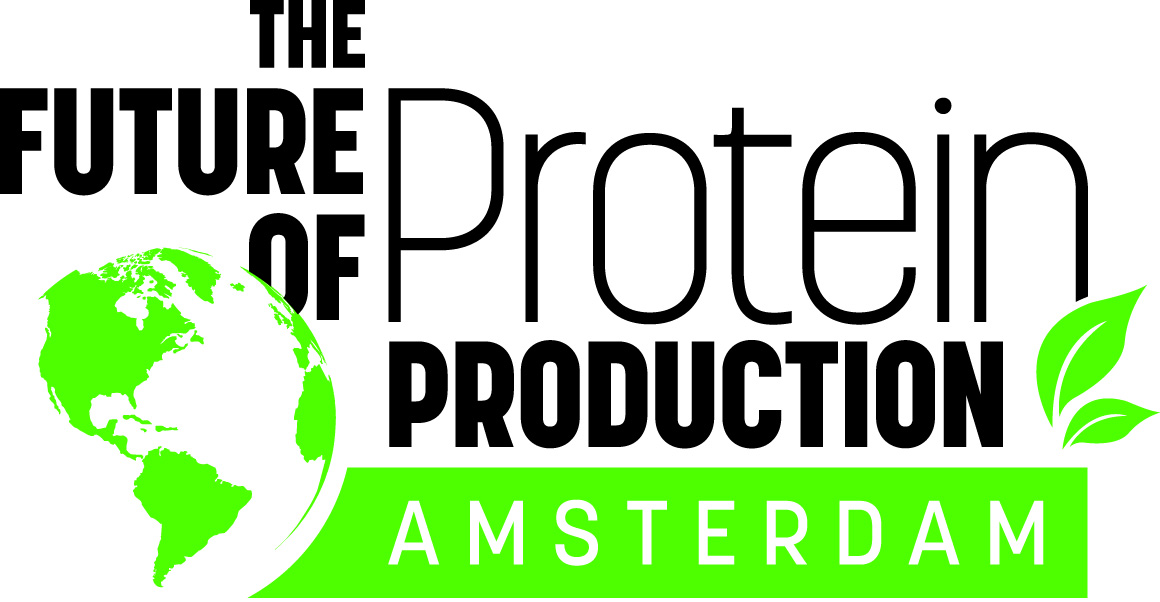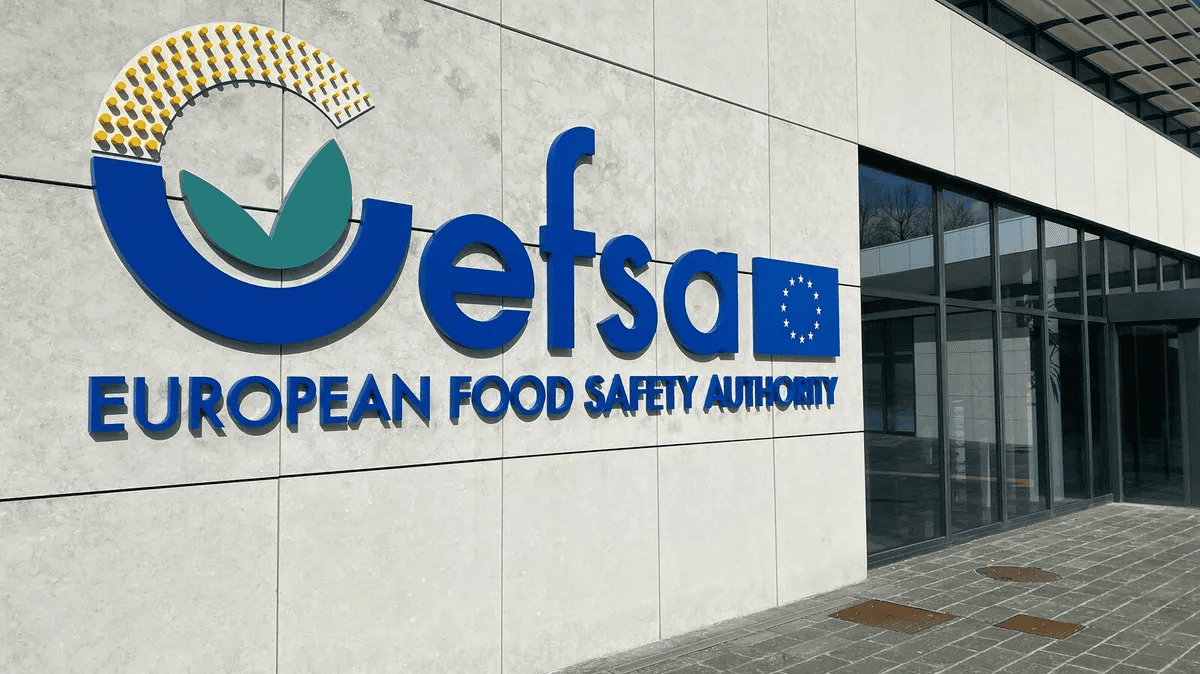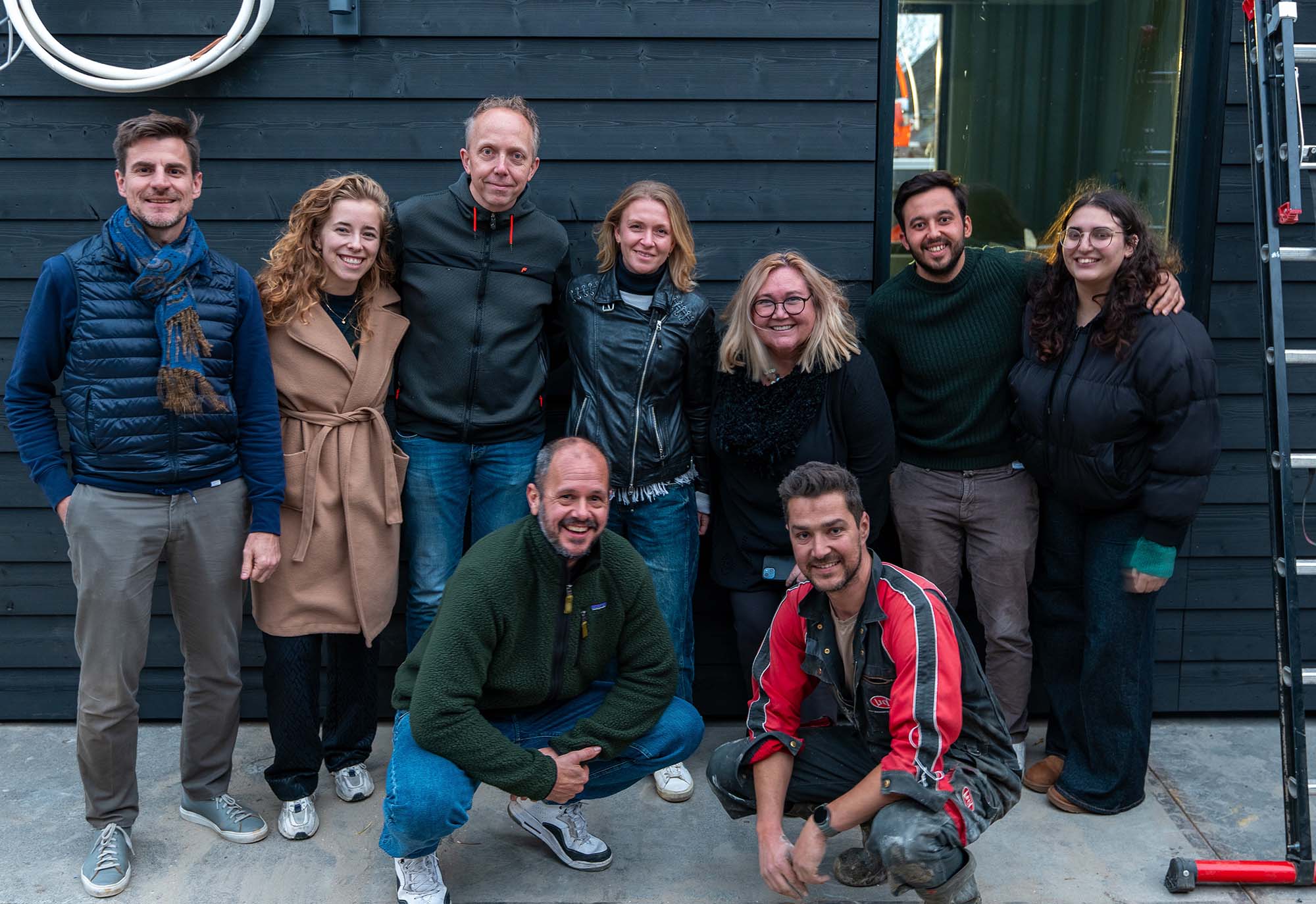

FPP Amsterdam 2025 Speaker Exclusive: Regulation, reality, and the road ahead – GFI Europe's Seth Roberts on making Europe work for alternative proteins
GFI Europe's Seth Roberts is working to ensure that plant-based, cultivated, and fermentation-made foods have a fair and science-based path to market. Here he talks regulation, consumer trust, and what’s needed to unlock the next phase of growth across Europe and the UK
Seth Roberts spends his days deep in the policy weeds – navigating regulations, engaging with public authorities, and translating complex science into actionable pathways for innovation. As Senior Policy Manager at the Good Food Institute Europe, Roberts is on a mission to ensure that plant-based, cell-cultivated and fermentation-made foods have a fair, clear, and evidence-based route to market across both the EU and UK.
“I work with regulators, food safety experts and businesses to help remove unnecessary barriers, while upholding the gold standard of European food safety,” he explains. That focus on enabling – not bypassing – regulatory rigor is a hallmark of GFI Europe’s approach.

And there’s plenty to be excited about. “The trajectory for the sector in Europe is really positive and exciting,” Roberts says. “We’re seeing rapid advances in science, huge increases in public and philanthropic funding, and a growing number of companies closing in on commercialization.”
He points to GFI Europe’s recent research that revealed a 960% increase in patents over the past decade, and that 2023 alone saw more academic papers published on alternative proteins than any previous year. Fermentation startups attracted record investment, cultivated meat companies are multiplying, and plant-based food sales are ticking upward in many countries – despite broader challenges in the food industry.
Still, structural barriers remain. From limited access to public R&D funding to regulatory bottlenecks that delay product approvals, Roberts argues that governments hold the keys to unlocking further progress.

The path to market: robust but clunky
For most novel alt protein products, the EU’s path to market runs through the Novel Foods Regulation. After a company submits its dossier, the European Food Safety Authority (EFSA) undertakes a detailed safety and nutrition assessment, a process expected to take 18 months – but often taking far longer. Even once EFSA gives its scientific opinion, the European Commission and all 27 member states must weigh in before authorization is granted.
“The system is built to be thorough, and that’s a good thing,” Roberts says. “But it’s also slow and opaque, especially for SMEs navigating it for the first time.”
In the UK, the regulatory structure remains largely aligned with the EU post-Brexit, though there are signs of divergence. One notable example is the UK’s newly announced cultivated meat sandbox. With £1.6 million in funding from the Department for Science, Innovation and Technology, it aims to build regulatory expertise and streamline guidance on product safety, hygiene, and labeling. A separate innovation hub for precision fermentation products, funded with £1.4 million, further underscores the UK’s growing interest in next-gen food tech.
“These are encouraging signals,” believes Roberts. “They show that regulators can – and should – become more agile and collaborative without compromising safety.”
Reforming regulation: transparency and trust
So, what would better look like? For Roberts, it starts with better communication between companies and regulators.
“In fast-moving sectors like this, producers are always going to know more about their products than the regulators reviewing them,” he says. “That’s why it’s so important to create structured pre-submission consultations. Companies need clarity on what data is required around toxicology, allergens, production processes – the sooner that’s shared, the fewer delays we see.”
EFSA has already taken steps in that direction, piloting a program to offer advisory support for novel food SMEs. Roberts hopes to see that evolve into a permanent and more expansive mechanism.
“Regulators and innovators need to co-create knowledge,” he says. “There’s precedent for this kind of public-private knowledge sharing in other industries. Food innovation deserves the same level of collaborative rigor.”

The reality behind plant-based sales
Despite some negative headlines, Roberts insists that consumer demand for plant-based food remains strong. Circana data compiled by GFI Europe shows rising sales in countries like France (+5.1%), Germany (+7.1%), Spain (+9.8%), and Italy (+6.5%). The Netherlands and the UK saw some declines, but the broader picture is one of resilience.
“Growth in private label is helping affordability in some countries, but we’re also seeing continued demand for higher-priced branded products,” he explains. “So, taste and familiarity are clearly still critical drivers.”
He notes that plant-based meat remains a dominant category in terms of value – even where traditional options such as tofu and tempeh are growing. And plant-based dairy continues to edge toward mainstream adoption. “In Spain, plant-based milk now holds a 9.3% share of the total milk market,” he says, citing GFI’s analysis of NIQ Homescan household panel data.
The same data shows 46% of households in Spain, 37% in Germany, and 32% in the UK bought plant-based milk at least once last year. And around a third of UK and German households also bought plant-based meat.
“The opportunity is there,” Roberts says. “But we have to keep delivering on taste, nutrition, and value to grow that footprint.”
Overcoming political friction
Political pushback is another front GFI Europe watches closely. Roberts is cautious but clear-eyed about its origins.
“A diversity of views on new technologies is healthy,” he says. “But it’s essential these debates remain grounded in evidence, not ideology.”
He highlights a report from Germany’s Scientific Advisory Board on Agricultural Policy, Nutrition and Consumer Health (WBAE), which advocates for an ‘ideology-free dialogue’ around the role of alternative proteins. Similarly, the EU Life Sciences Strategy acknowledges the potential of biomass and precision fermentation to deliver high-value sustainable products, and outlines €350 million in sustainable bioeconomy and other funding opportunities relevant to food tech.
“We also saw the EU’s Startups and Scaleups Strategy underscore the need for regulatory agility and sandbox-style initiatives,” Roberts adds. “There’s a growing recognition that smart regulation can foster innovation – not stifle it.”
In the UK, the government’s National Food Strategy consultations have acknowledged the economic and environmental potential of alternative proteins, positioning them as a key pillar in future agritech growth.

Processing, science, and public perception
The ultra-processed foods (UPF) debate has become a flashpoint for critics of plant-based meat, but Roberts urges people to separate scientific nuance from media noise.
“It’s unfortunate that confusion around UPFs is obscuring the benefits of plant-based foods with solid nutritional profiles,” he says. “The most consumed UPFs – like sugary drinks and processed meat – are very different from plant-based meat, which tends to be high in protein, low in saturated fat and sugar, and a source of fiber.” This nutritional profile varies between products, but multiple studies across Europe – including in the UK, Spain, Germany and the Netherlands consistently find the average plant-based product is considerably better than the processed meat it typically replaces.
This leads to considerable confusion among the public: while most foods in the UPF category have a poor nutritional profile, this is not true of all foods in the category. The findings of independent studies from government bodies in the UK, France, Spain, Germany and the Nordic Council all agree that, while UPFs with poor nutritional profiles like sugary drinks, processed meat, cakes and desserts should be discouraged in excess, the evidence does not suggest that UPFs with good nutritional profiles present a concern, and some such as fortified cereals, wholemeal bread and plant-based alternatives can help make healthier, more sustainable diets more accessible.
Replacing red and processed meat with plant-based meat has been associated with reductions in LDL cholesterol, and therefore lower cardiovascular risk. And some plant-based products are fortified with key micronutrients like vitamin B12 and iodine, helping bridge nutritional gaps during dietary transitions.
“The challenge is making sure this information reaches the public in a trusted, science-based way,” Roberts says. “Companies can help, but we need more independent, publicly funded research to lead the conversation.”
Infrastructure: the critical missing piece
If there’s one thing Roberts could change tomorrow, it would be how Europe supports infrastructure development.
“Right now, many companies are stuck in the ‘valley of death’ – too big for seed funding, too small for commercial lending,” he explains. “That’s where government-backed financing can make a huge difference.”
Strategic infrastructure investment could help scale up production, drive down costs, and ensure broader market access. It’s also essential for reducing reliance on imported inputs and creating regionally resilient supply chains.
“It’s not just about funding factories,” Roberts says. “It’s about building the foundation for a new, sustainable food economy. If we get this right, we create jobs, drive innovation, and strengthen food security across Europe.”

The signs of success
So, what would indicate that Europe is getting it right?
“First, strong and growing consumer demand,” Roberts says. “Europe remains the world’s largest plant-based food market. And new polling we carried out with HarrisX and Plant Futures found that 38% of adults in the UK and Germany plan to eat more plant-based food. Over half intend to change their diets in some way – either by eating more plant-based or reducing animal product consumption.”
Second, sustained investment. “The record fundraising levels we saw in Europe’s fermentation sector last year are a sign that investors are still confident in this space,” he adds. “But that capital needs to be matched with government-backed funding, particularly for infrastructure.”
And finally, meaningful policy follow-through. “When we see funding calls that align with the EU Life Sciences Strategy, when national food strategies reflect protein diversification, and when regulators work proactively with innovators – that’s when we know we’re moving in the right direction.”
Seth Roberts is one of more than 100 speakers taking to the stage at The Future of Protein Production Amsterdam on 29/30 October 2025. To join him and more than 1,000 other attendees, book your conference ticket today and use the code, 'PPTI10', for an extra 10% discount on the current rate. Click here
If you have any questions or would like to get in touch with us, please email info@futureofproteinproduction.com






